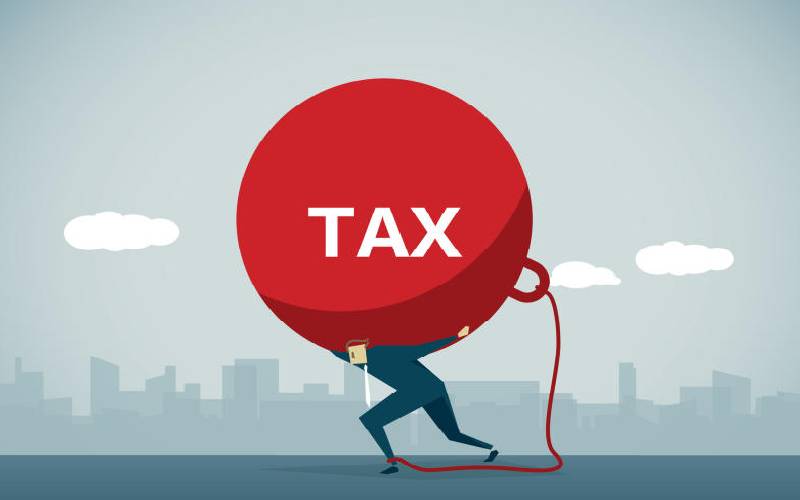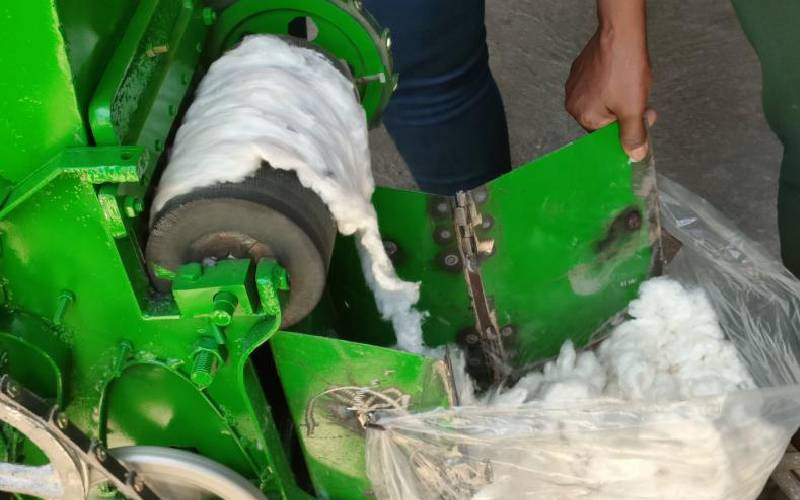
The banking industry contributed close to a third of all the corporate tax paid in Kenya in the last two years, a new report has shown.
This came amid the adverse impact of the Covid-19 pandemic that caused a 12 per cent overall decline in the industry's total tax contribution in 2020 compared to 2019, according to the report compiled by audit firm PricewaterhouseCoopers (PwC) on behalf of the Kenya Bankers Association (KBA).
The report attributes the decline to reduction in collection of income taxes - corporate tax and Pay As You Earn (Paye).
“This decline is partly attributable to reduced tax rates, specifically reduction of corporate tax rate from 30 per cent to 25 per cent, reduction of the top Paye rate from 30 per cent to 25 per cent and the reduction of value added tax rate from 16 per cent to 14 per cent.," the report says.
"The aim of these measures was to provide relief to taxpayers against adverse economic effects of the Covid-19 pandemic."
Reduced profitability meant that corporate income tax, which is paid on profits, shrunk. Reduction of Paye was also due to a drop in workforce by around 8.3 per cent.
Corporate tax and Paye were the largest contributors to the sector's total tax contribution at 42.5 per cent and 16.5 per cent respectively.
Speaking during the report’s release on Thursday, KBA Chief Executive Habil Olaka said the contribution indicates that the industry remained resilient, navigated the challenges occasioned by the Covid-19 pandemic and continued supporting the economy.
“We recognise the important role the financial services sector plays in supporting economic growth," he said.
"In this regard, we remain committed to sustain efforts towards anchoring business recovery in the face of the Covid-19 disruption."
Bank profitability declined last year, largely due to an increase in bad loans for which lenders were forced to set aside some money as insurance against possible defaults.
PwC Kenya Associate Director and the lead technical advisor on the study, Alice Muriithi, said the report raises a number of questions about how tax policy impacts the banking sector, and its contribution to the tax base and the economy.
Due to the pandemic, banks experienced depressed performance and quality of assets, with provisioning for loan losses increasing by 47.5 per cent to Sh198.1 billion from Sh134.3 billion in 2019.
Loan loss accommodations absorbed 45.7 per cent of non-performing loans compared to 40.2 per cent in 2019, according to the State of the Banking Industry Report, 2020.
The industry also restructured customer loans worth Sh21.63 trillion, or 54.2 per cent of the total Sh3 trillion loan portfolios, with the percentage of gross non-performing loans to gross loans significantly increasing to 14.1 per cent by December 2020 compared to 12 per cent in December 2019.
Despite the challenges, access to credit for micro, small and medium-sized enterprises (MSME) increased.
According to the Central Bank of Kenya 2020 MSME Survey report, lending to the enterprises increased by 42 per cent between 2017 and 2020 to stand at Sh638.3 billion by December 2020 from Sh413.9 billion in December 2017.
The report also notes that the banks that participated in the study contributed 7.5 per cent of the total government tax receipts in 2019 and 2020.
“Considering a total population of six million registered taxpayers countrywide, this is indeed a very significant contribution,” said Ms Muriithi.
 The Standard Group Plc is a multi-media organization with investments in media
platforms spanning newspaper print operations, television, radio broadcasting,
digital and online services. The Standard Group is recognized as a leading
multi-media house in Kenya with a key influence in matters of national and
international interest.
The Standard Group Plc is a multi-media organization with investments in media
platforms spanning newspaper print operations, television, radio broadcasting,
digital and online services. The Standard Group is recognized as a leading
multi-media house in Kenya with a key influence in matters of national and
international interest.
 The Standard Group Plc is a multi-media organization with investments in media
platforms spanning newspaper print operations, television, radio broadcasting,
digital and online services. The Standard Group is recognized as a leading
multi-media house in Kenya with a key influence in matters of national and
international interest.
The Standard Group Plc is a multi-media organization with investments in media
platforms spanning newspaper print operations, television, radio broadcasting,
digital and online services. The Standard Group is recognized as a leading
multi-media house in Kenya with a key influence in matters of national and
international interest.










